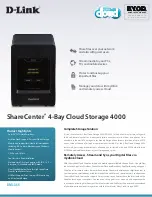
Functional Description
The module exits the force-idle mode when the PRCM deasserts the idle request. Then the module
switches back to normal mode. The module is fully operational. Interrupt and DMA request lines are
optionally asserted one clock cycle later.
18.3.3.6 Local Power Management
describes power-management features available for the MMC/SD/SDIO modules.
Table 18-9. Local Power Management Features
Feature
Registers
Description
Clock Auto Gating
SD_SYSCONFIG AUTOIDLE bit
This bit allows a local power optimization inside module, by
gating the OCP clock upon the interface activity or gating the
CLKADPI clock upon the internal activity.
Slave Idle Modes
SD_SYSCONFIG SIDLEMODE bit
Force-idle, No-idle, and Smart-idle modes
Clock Activity
SD_SYSCONFIG CLOCKACTIVITY bit
Please see
for configuration details.
Global Wake-Up
SD_SYSCONFIG ENAWAKEUP bit
This bit enables the wake-up feature at module level.
Enable
Wake-Up Sources
SD_HCTL register
This register holds one active high enable bit per event source
Enable
able to generate wake-up signal.
Table 18-10. Clock Activity Settings
Clock State When Module is in
IDLE State
CLOCKACTIVITY
Features Available when Module is in
Values
OCP Clock
CLKADPI
IDLE State
Wake-Up Events
00
OFF
OFF
None
Card Interrupt
10
OFF
ON
None
01
ON
OFF
None
11
ON
ON
All
CAUTION
The PRCM module has no hardware means of reading CLOCKACTIVITY
settings. Thus, software must ensure consistent programming between the
CLOCKACTIVITY and MMC clock PRCM control bits.
3360
Multimedia Card (MMC)
SPRUH73H – October 2011 – Revised April 2013
Copyright © 2011–2013, Texas Instruments Incorporated
















































